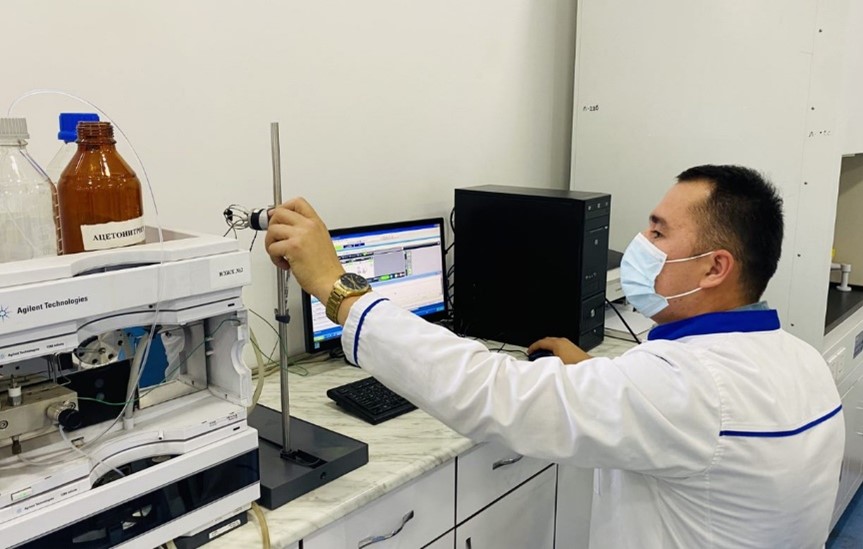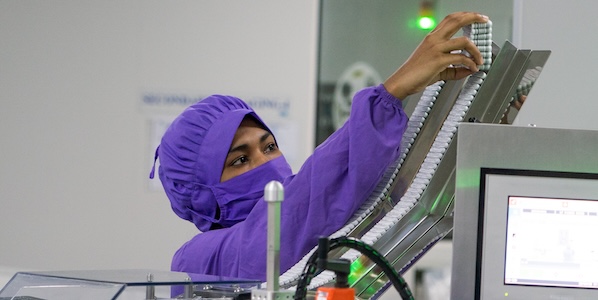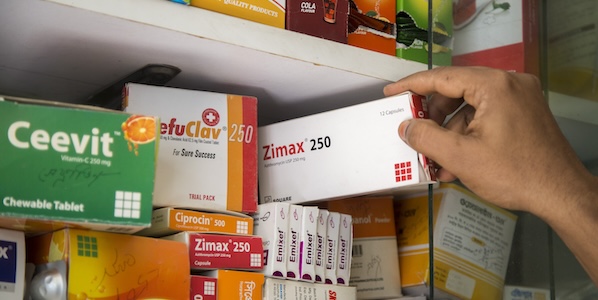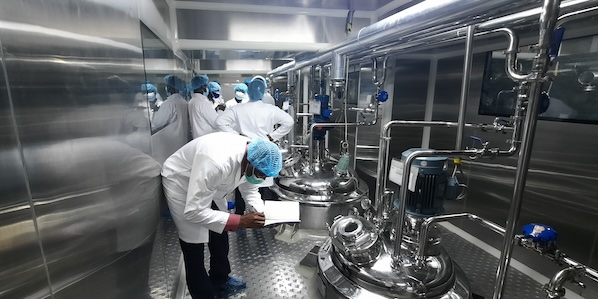
Uzbekistan is transitioning from Global Fund-supported procurement of TB medicines to domestically funded and produced quality-assured TB medicines. To help the government strengthen the local production of quality-assured medicines in the country, PQM+ is working with the Center for Pharmaceutical Product Safety (CPPS) and the Agency for Development of the Pharmaceutical Industry Development (Agency) to improve the medicine regulatory system and to develop the pharmaceutical industry of Uzbekistan.
This work includes capacity building of the CPPS in medicine review and registration, supporting medicine quality control laboratories (MQCLs) in reliably and accurately testing the quality of medicines, and preparing the Good Manufacturing Practices Inspectorate for accession to the Pharmaceutical Inspections Cooperation Scheme (PIC/S). PQM+ also provides technical assistance to pharmaceutical manufacturers to boost the supply of locally manufactured, quality-assured TB medicines. PQM+ is also providing technical assistance to the CPPS in establishing a post marketing surveillance (PMS) program using an effective risk-based approach, in strengthening their medical devices quality assurance system; and in establishing clinical research organizations (CROs) for conducting bioequivalence studies.
PQM+ is providing technical assistance to the CPPS and the Agency in developing strategies for pharmaceutical industry development and for strengthening medicines regulatory system. PQM+ is also supporting the government’s response to the COVID-19 pandemic by providing technical assistance to the CPPS on emergency use authorization; and strengthening Lot Release function. PQM+ is developing capacity of the National Immunization Program (NIP) on the Adverse event following Immunization (AEFI) program.
PQM+ has recently initiated activities to strengthen Uzbekistan’s response to infectious diseases threats, including addressing AMR, by ensuring the quality of antimicrobials and other medical products as well as provide technical assistance to diversify the pharmaceutical supply chain in Asia by strengthening local capacities in competitive manufacturing, procurement, governance and regulatory systems, technology, and workforce development.
Impact stories and news
- USAID launches $5 million project to spur regional production of active pharmaceutical ingredients in Central Asia
- Uzbekistan streamlines TB medicine registration
- USAID Improving Medicines Quality and Safety in Uzbekistan
- Tackling drug-resistant TB in Central Asia
- Strengthening National Quality Control Laboratories
- Building confidence and production of better medicines
- Uzbekistan streamlines medicine registration for tuberculosis
- USAID launches quality club in Uzbekistan
- USAID facilitates access to six tuberculosis medicines in Uzbekistan
- Uzbekistan speeds access to sources of TB medicines
- Uzbekistan’s ‘quality club’ boosts collaboration to improve access to quality-assured medicines
- USAID representatives visit Uzbekistan for a ceremonial handover of medical product testing equipment








